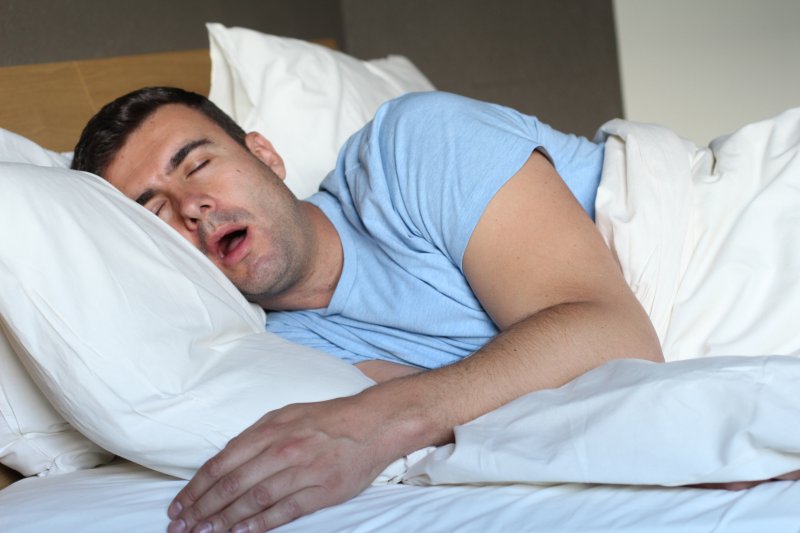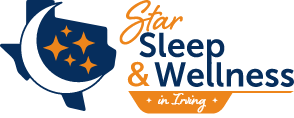
Saliva plays a crucial role in oral health. In addition to commencing the digestion of food, it washes away particles and bacteria that can be harmful if left lingering in the mouth. Our mouths produce saliva all of the time, even while we sleep. It isn’t uncommon for some of that saliva to escape the mouth while sleeping, but why does this happen? Is there something you can do about it? Continue reading to learn more about the causes of drooling and how it can be reduced.
What Causes Drooling?
There are a variety of different reasons why one may drool in their sleep, some being completely normal and others being issues. Here are some of the most common:
- Sleeping Position: If you prefer to lay on your side or stomach while you sleep, gravity is likely to pull saliva from your mouth if your mouth is open, increasing the amount you drool.
- Infection/Allergies: If you have a cold, strep throat, seasonal allergies, or another ailment you’re dealing with, this can inflame your sinuses, blocking your airway. This results in you breathing through your mouth while you sleep, increasing your drool.
- Gastroesophageal Reflux Disease (GERD): Heartburn is the most common sign of GERD, but drooling and dysphagia (difficulty swallowing), are also common.
- Obstructive Sleep Apnea (OSA): This sleep-related breathing disorder causes temporary cessation of breathing during sleep. This can cause sufferers to mouth-breathe and ultimately drool more. Some common signs of OSA include loud snoring, frequent waking during the night, morning headaches, difficulty focusing, and daytime sleepiness.
What Can You Do to Stop Drooling?
Sometimes, drooling during sleep is normal and doesn’t require any treatment. Other times, action should be taken. Here are some ways to reduce drooling:
- Change Sleeping Position: Many people are able to relieve their drooling by switching their sleep position. If you are normally a side sleeper, try sleeping on your back instead.
- Address Allergies: Allergies are sometimes the culprit. Treating your allergies could enable you to breathe through your nose more easily, reducing drooling.
- Sleep Apnea Treatment: If OSA is the cause of your drooling, it’s important that you have this addressed. There are a variety of treatment options out there, including oral appliance therapy, CPAP therapy, and more. By working with a sleep dentist, you can work to find a solution that helps you get the quality sleep you need to thrive.
Drooling isn’t always a bad thing, but if you think you’re doing it too much, this is something to bring up with your dentist. This way, you can work together to determine the cause and come up with a solution.
About the Practice
At Star Sleep & Wellness in Irving, we have a team of multiple board-certified sleep physicians as well as a licensed psychologist. It is our goal to help all of our patients to get the restful night of sleep they deserve. If you think your drooling could be related to sleep apnea, we’d be happy to help! To learn more about sleep apnea treatment or to schedule an appointment, visit our website or call (469) 331-9629.
